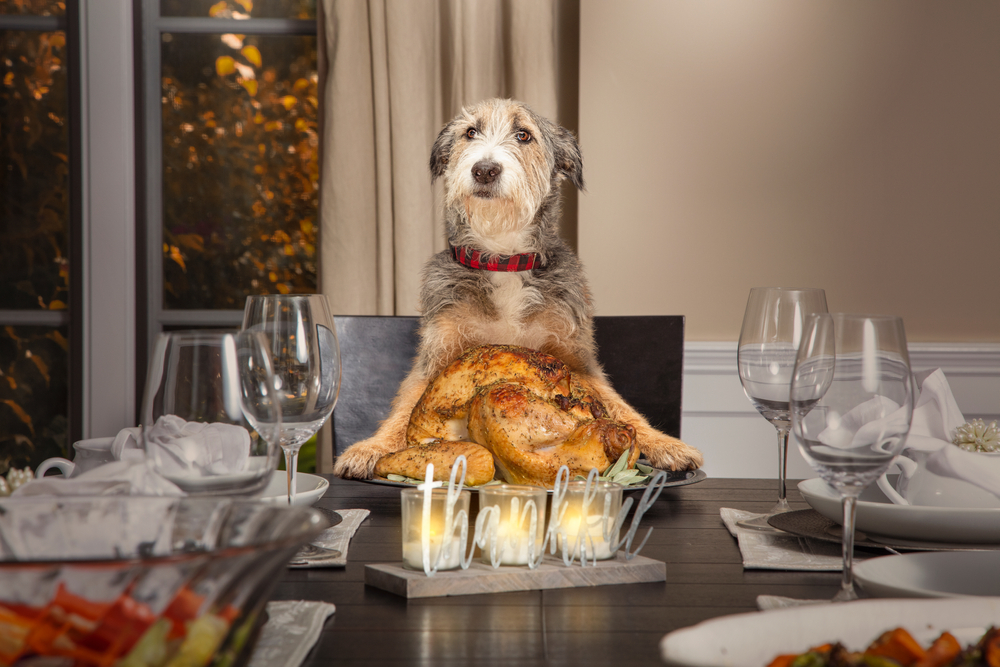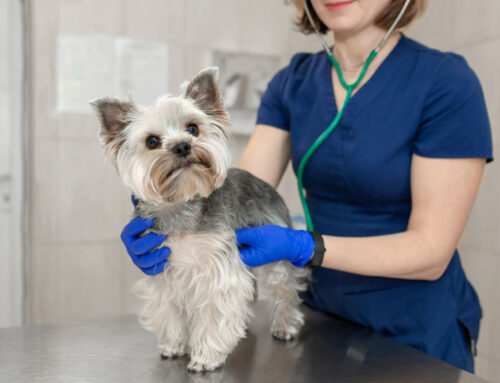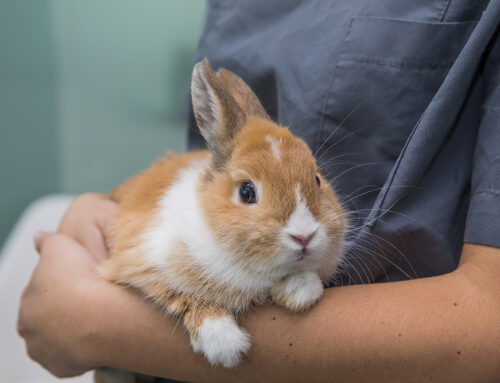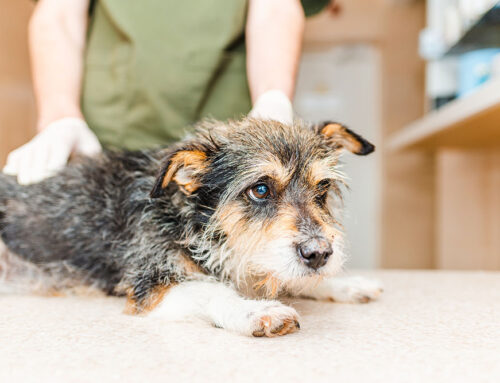Thanksgiving is synonymous with delicious food, family, and fun, but it can also be a time of hidden dangers for our pets. Did you know that emergency vet visits often spike during the holidays due to food-related incidents? At Parker Center Animal Clinic we’re here to help you ensure your pets stay safe and happy while you enjoy the festivities. Here’s your ultimate guide to Thanksgiving pet safety.
The Do’s: Safe Thanksgiving Foods for Pets
Sharing is caring, but it’s important to know what’s safe to share. Here are some foods your pet can enjoy in moderation:
- Cooked Turkey (without skin or bones): A small amount of plain, lean turkey meat is a protein-rich treat.
- Plain Vegetables: Carrots, green beans, and sweet potatoes are great options if they’re free of butter, salt, and seasonings.
- Pumpkin (unsweetened): Canned or cooked pumpkin can aid digestion and is a tasty addition to their meal.
Pro tip: Keep portions small to prevent upset stomachs!
The Don’ts: Foods That Are Toxic to Pets
Some of our holiday favorites can be hazardous to your furry friends. Avoid feeding them:
- Stuffing and Gravy: Ingredients like onions, garlic, and high-fat content can be toxic.
- Grapes and Raisins: Even small amounts can cause kidney failure in dogs.
- Chocolate: This sweet treat contains theobromine, which is toxic to dogs and cats.
- Alcohol: Even a small sip can lead to serious health problems.
For a complete list of foods to avoid, check out this guide to common pet toxins.
Why Are These Foods Dangerous?
Understanding the risks behind certain foods can help you prevent accidents. Many Thanksgiving dishes contain:
- Excessive Fats: Foods like turkey skin and gravy can cause pancreatitis, a painful and potentially life-threatening condition.
- Toxic Ingredients: Onions, garlic, and even nutmeg in pumpkin pie can be harmful to pets.
- Artificial Sweeteners (like Xylitol): Found in sugar-free desserts, xylitol can cause hypoglycemia or liver failure in pets.
Spotting Signs of Food Toxicity
If your pet accidentally eats something they shouldn’t, quick action is key. Watch for these symptoms:
- Vomiting or diarrhea
- Lethargy or weakness
- Rapid breathing or abnormal heart rate
- Seizures or collapse
Want to be prepared for any emergency? Refer to our Pet First Aid page for guidance. When in doubt, seek veterinary care!
Tips for a Pet-Safe Thanksgiving
Follow these tips to keep your pet safe during the holiday:
- Keep Unattended Food Out of Reach: Use pet-proof lids or keep food off low tables.
- Inform Guests: Let visitors know not to feed pets table scraps.
- Prepare a Pet-Friendly Feast: A plate with plain turkey, steamed vegetables, and a dollop of pumpkin puree is a great way to include your pet in the celebration.
Creating a Stress-Free Environment for Your Pet
Thanksgiving isn’t just about food—it’s also a time filled with activity, noise, and unfamiliar faces. While this can be exciting for humans, it can be overwhelming for pets. Here are some tips to keep your pet calm and stress-free:
- Provide a Quiet Space: Create a designated “safe zone” where your pet can retreat if they feel overwhelmed. This could be a quiet room with their bed, toys, and water.
- Stick to Their Routine: Pets thrive on consistency. Try to maintain their usual schedule for meals, walks, and playtime, even amidst the holiday chaos.
- Supervise Interactions: If children or unfamiliar guests are present, supervise interactions to ensure your pet feels safe and isn’t overstimulated.
- Use Calming Aids: If your pet is prone to anxiety, consider using calming sprays, diffusers, or anxiety wraps. Consult your veterinarian for advice on the best options.
Signs of Stress in Pets
Understanding your pet’s body language can help you intervene early if they’re feeling stressed. Watch for signs such as:
- Panting or excessive drooling (in dogs)
- Flattened ears or dilated pupils (in cats)
- Pacing, whining, or hiding
If you notice these behaviors, encourage your pet to take a break in their safe space.
Extra Tip: Consider giving your pet a puzzle feeder or long-lasting chew to keep them entertained while the festivities unfold.
What to Do in Case of Emergency
If you think your pet has ingested something harmful:
- Stay Calm: Panicking can make it harder to act decisively.
- Call Your Veterinarian or a Pet Poison Hotline: Provide as much information as possible, including the type and quantity of food consumed.
- Visit an Emergency Clinic: Prompt medical attention can make all the difference.
For emergencies, don’t hesitate to contact Parker Center Animal Clinic or locate a nearby emergency pet clinic.
Make Parker Center Animal Clinic Part of Your Pet’s Year-Round Care
At Parker Center Animal Clinic, we’re dedicated to your pet’s health, from wellness exams to emergency care. Bookmark this ASPCA guide on Thanksgiving safety for more holiday tips, or explore the AVMA’s Thanksgiving safety tips.
A Safe and Happy Thanksgiving
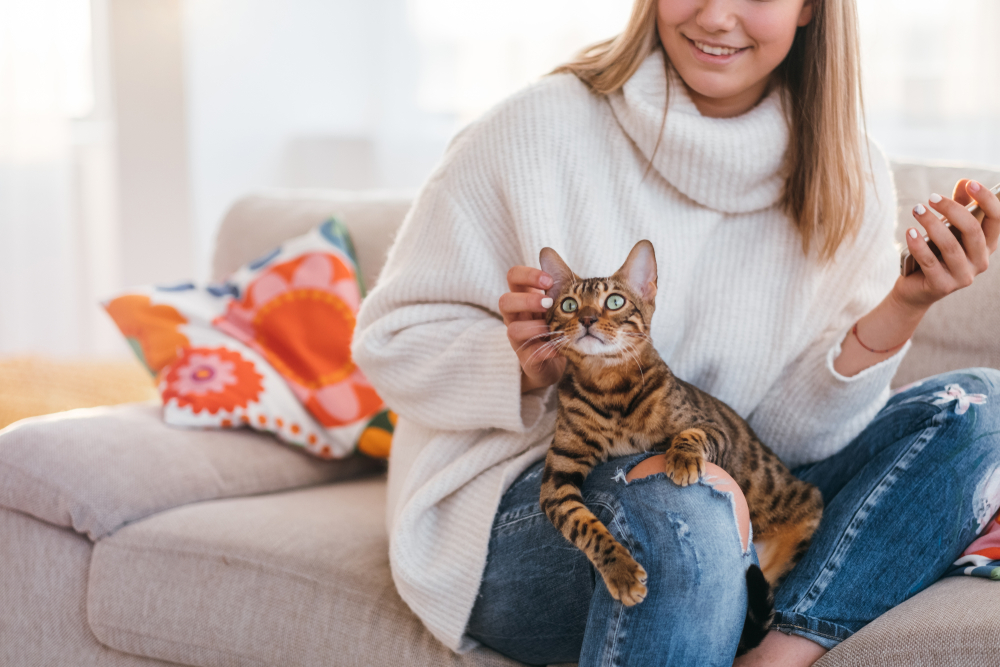
The holidays should be a time of joy, not worry. By following these tips and being mindful of what your pet consumes, you can ensure a safe and stress-free Thanksgiving for your entire family. If you have questions or concerns about your pet’s health, our team at Parker Center Animal Clinic is just a call away.
From our family to yours, have a wonderful Thanksgiving!


